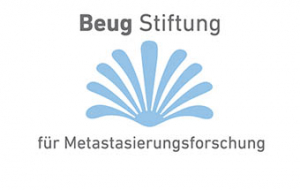Manuel Valiente, Centro Nacional de Investigaciones Oncológicas, Madrid (Prize winner 2017)
Project 2017
Altered brain vessels as a novel target in brain metastasis
“Brain metastasis is an unmet need in high demand of novel and effective therapies. We propose to develop an innovative approach aiming to evaluate the possibility of targeting pro-metastatic components of the microenvironment induced by cancer cells. Speciifically we propose to focus our efforts on brain metastasis associated vessels. We previously defined the critical contribution of the interaction between cancer cells and vessels for the progression of metastasis in the brain. We now want to discover molecular alterations induced by the presence of brain metastatic cells on endothelial cells. We will consider the process of vascular co-option (occurring early during brain colonization) as well as angiogenesis (occurring at more advanced stages of brain metastasis) as the targets of our research. Describing these altered states of brain vessels compared to normal vessels will be critical to initiate an ambitious project aimed to define molecular alterations in endothelial cells correlating with altered permeability to drugs, novel therapeutic targets to impair the progression of brain metastasis as well as innovative biomarkers. In this proposal we describe a research plan to perform a comprehensive molecular characterization of brain metastasis associated vessels, which will be the central pillar for subsequent mechanistic and funktional studies.”
Report 2019:
Brain metastasis is an unmet clinical need in high demand of novel and effective therapies. We proposed an innovative approach consisting on targeting pro-metastatic components of the microenvironment induced by cancer cells. Specifically, we aimed to target brain metastasis associated vessels. We based the proposal on our previous finding that defined the critical contribution of the interaction between cancer cells and capillaries for the progression of metastasis in the brain, especially during the initial stages of colonization.
With the support of the Beug Foundation we have interrogated molecular alterations induced by the sustained influence of metastatic cells on brain capillaries. Being able to develop this critical initial stage of the project has allowed us to describe an altered state of co-opted brain vessels. We are now fully immersed in an ambitious project to functionally validate novel therapeutic targets to prevent the progression of brain metastasis. In addition, the experimental plan developed thanks to the support of the Beug Foundation has helped us to explore additional branches derived from our initial data involving strategies to increase drug permeability to challenge brain metastasis as well as the identification of non-invasive biomarkers to improve the early detection of metastases.

